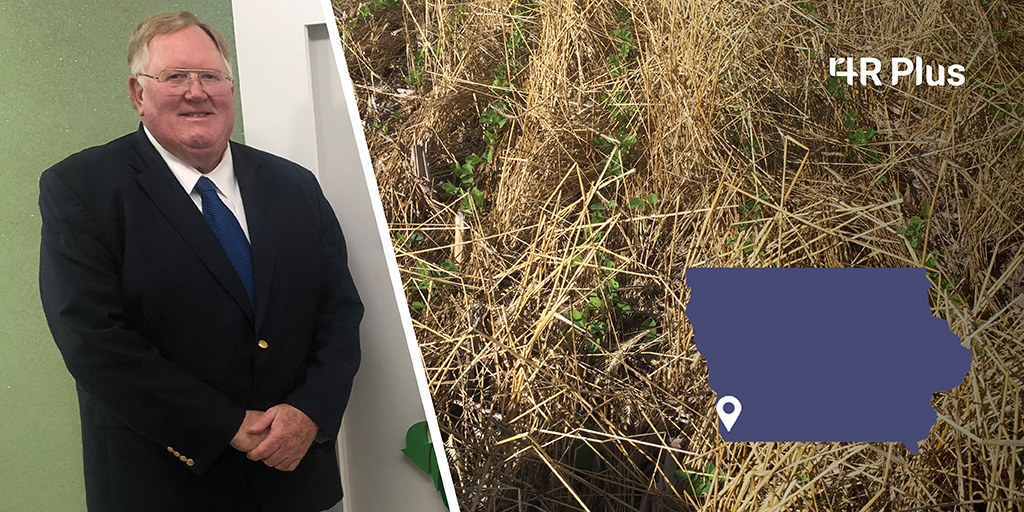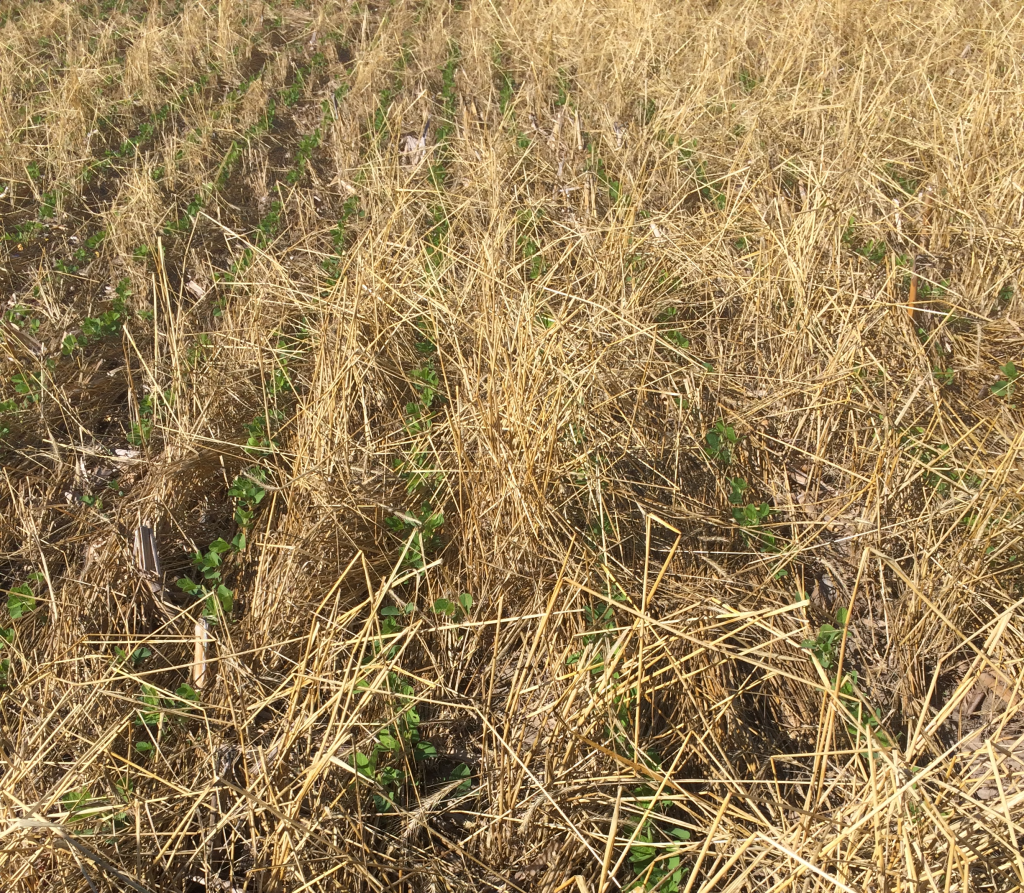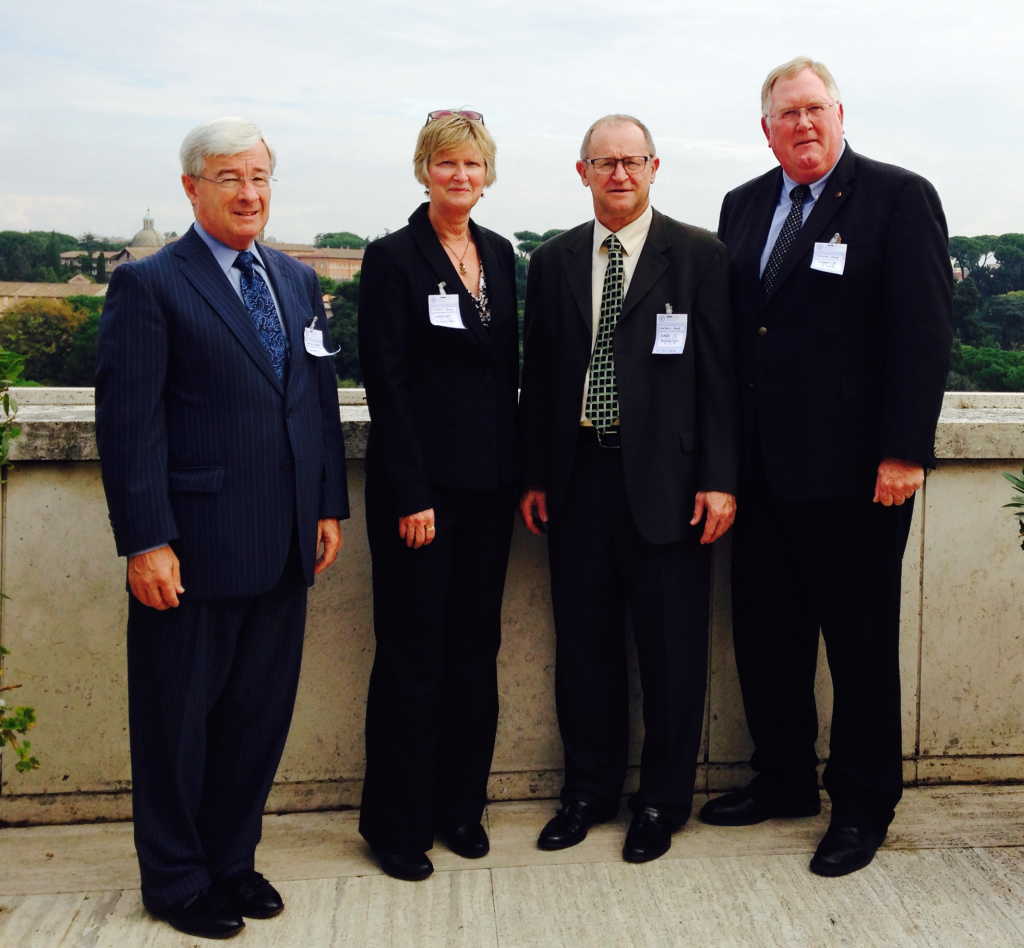
Fremont County corn and soybean farmer Julius Schaaf began experimenting with no-till in the 1980s and has been 100% no-till on rolling farmland for 25-plus years. He remembers a time when machinery made it more difficult to no-till but is happy to report it’s now a common practice in his area to limit erosion – even on the rented land.
Schaaf says maintenance on the terraces, waterways and buffer strips is important and something that kept him, his son and a longtime partner busy after the spring floods of 2019. “We’ve restored wetlands, added ponds and expanded quail habitat,” he said.
About half of the land farmed is rented. “Landlords appreciate when you take care of their farm just like you would your own.”
That combination of conservation and management practices, along with cover crops, has drastically improved the moisture-holding capacity of their soils. “We can handle heavy rains better than most farms under normal conditions,” Schaaf explained. “No-till allows moisture to infiltrate much better than tilled soil because the soil isn’t compacted and we’ve got earthworms working down there.”
Cover crop experience

For the last several years, Schaaf has been experimenting with cover crops. “On our corn ground that’s going into beans, we fly it on in late August or early September, hopefully to catch the rains before harvest,” he said. “Last year right after we seeded, we had a rainy, wet week. And we got the most beautiful stand of ryegrass I’ve ever seen.”
While every year is different depending on the stand and rainfall, they generally let the cover crop get fairly tall before termination. “Sometimes it shades the ground so the soil stays wetter,” Schaaf said. “Since we were 15 inches short of moisture last year, hopefully it’ll allow us to get the maximum benefit out of the rains we get this spring.
“I’m a firm believer in cover crops,” he added. “The farms we’ve been operating the longest have shown the greatest improvement. We can see the benefits from better weed control and increased organic matter. We can see it in the water-holding and nutrient-holding capacity. Most of the land we farm is getting more productive all the time.”
Cover crops suppress weeds
“Cover crops suppress weed growth, so the weeds don’t get as big as early,” said Schaaf. “Anything you can do to suppress water hemp and some of the resistant weeds is a huge benefit, and it’ll become an even bigger benefit moving forward. These weeds aren’t going to magically disappear. We have to learn to manage them, and in multiple ways.”
Producing more with less
He’s a firm believer that improving soil productivity is critical to producing more food using fewer resources. “We’ve got to expand production while protecting the soil and using less water, fertilizer and chemicals – and we’ve done that,” he said.

“When you take a 60-year look at agriculture, the amount of crops we’re taking off the land compared to the amount of fertilizer and chemicals we’re putting in, it’s amazing how we’ve advanced production without increasing inputs. Part of it is improving plant genetics, but we’re also increasing productivity because of the way we’re treating our soils,” he said.
As a former chairman of the U.S. Grains Council, Schaaf has traveled to 40 countries. “In the U.S., we won the lottery when it comes to soil and water and the ability to feed not only ourselves but the rest of the world,” he noted. “That’s why it’s so important to preserve the health of our soil and the productivity of our farms.”
Schaaf is transitioning to retirement and handing his day-to-day responsibilities over to his son. Although if Schaaf is anything like his father before him, he’ll be driving tractors and combines for at least another 15 years. He’s confident the farms remain in good hands: Schaaf’s son has been doing their fertilizer and chemical recommendations for years.
Click here to ask Julius Schaaf a question about the farming operation.
